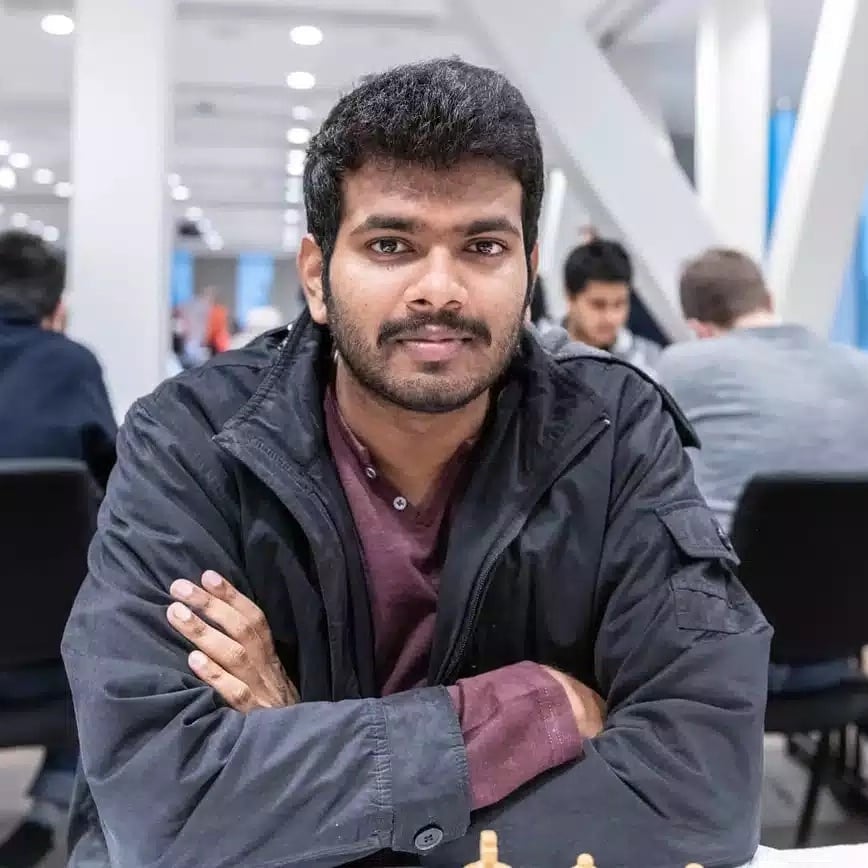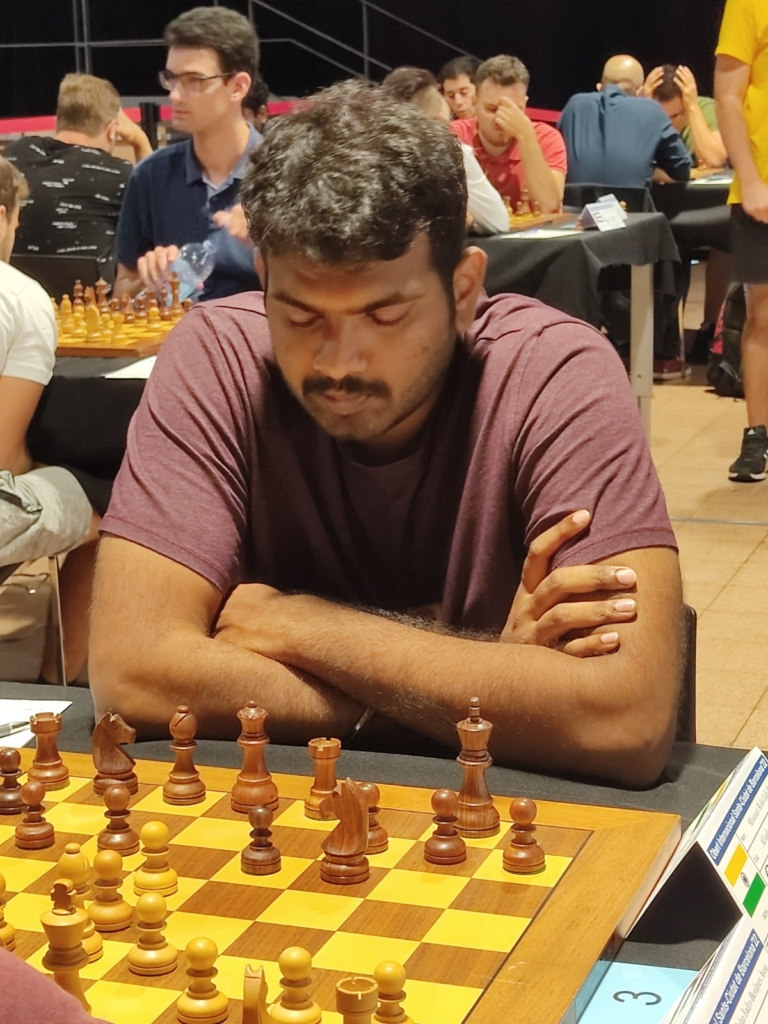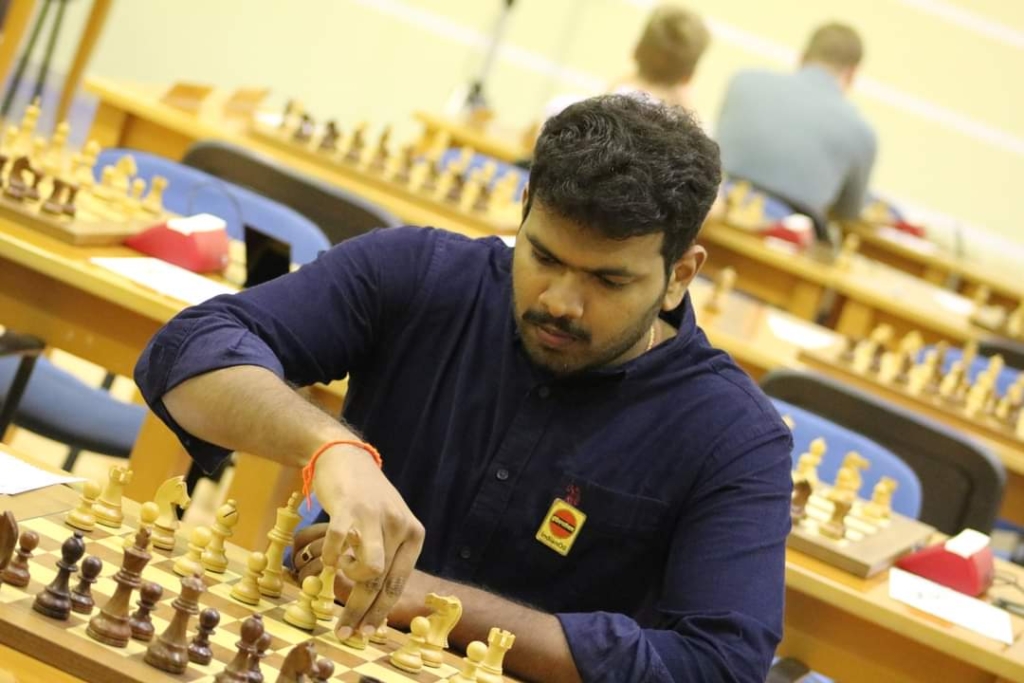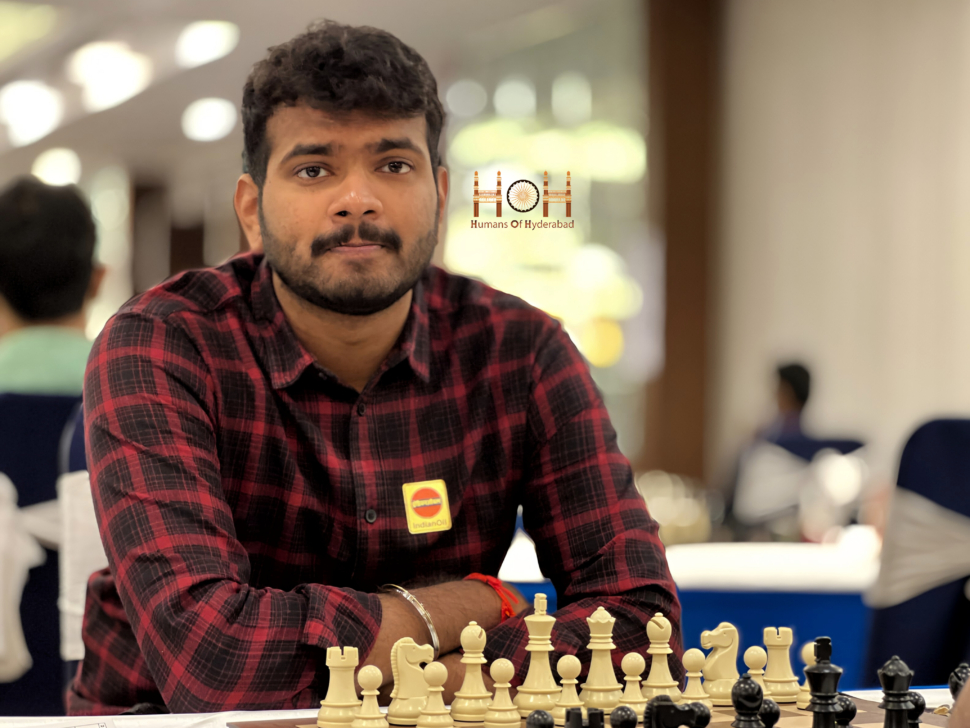“I wasn’t born into a sports family. No one played professionally, and chess wasn’t something we seriously considered. But even as a toddler, I had a strong memory. My mom says I was around two when I won the Bala Prathiba award for identifying all the countries correctly. That’s when she realised I needed something more engaging.
One summer, she noticed I was getting restless with too much free time. A friend of hers casually suggested chess. I still remember that phase clearly. My first coach, Murali Krishna Sir, took me from Vijayawada to Hyderabad by Intercity train, and in the evening, we attended a felicitation ceremony for Koneru Humpy and Harikrishna, who had just become Grandmasters. That moment stuck with me. I was just a kid, but seeing them on that stage lit a spark. I didn’t just want to play, I wanted to excel.
My schooling didn’t follow a typical route. I left regular school after Class 3, returned briefly in Class 5, and then again for the Class 7 public exams. I skipped 8th and 9th, then fast-tracked 10th, 11th, and 12th. I’d study mostly during the off-season, around February and March. Chess actually improved my memory and focus, so academics weren’t ignored, just compressed. My mom also wanted me to experience regular college life, so I enrolled and attended a few classes. But honestly, my mind was always on chess.
In 2005, things really started moving. Until then, I was just a budding player, but during the FIDE-rated tournament held in Visakhapatnam, I caused a string of upsets and came close to winning. That’s when people started noticing. The motivation was always there, especially after that first felicitation event, but now I had results backing it up. I won the Under‑17 Nationals in 2007 and soon after, achieved my first International Master norm. That gave me real confidence.
Spain, 2009, was a big milestone. I picked up another IM norm and felt like the Grandmaster title was within reach. In 2012, I earned it at the Hastings International Chess Congress in England. I was 19. That felt like the real beginning.

Travel has taught me as much as chess itself. A highlight was the Chess Olympiad in Norway, 2014, where our team won India’s first-ever bronze medal. With 180+ countries competing, being part of that young Indian squad was an unforgettable experience.
These days, I focus a lot on physical and mental prep. Mornings start with some sport or running, followed by meditation. My diet changes depending on where I’m playing. Every tournament needs a fresh strategy. Once something shows up on the board, opponents will prepare for it. The game has evolved, and everyone has access to the same databases. You have to keep innovating. I constantly study my past games to spot patterns, mistakes, and new possibilities. If you don’t adapt, you fall behind.
My family has been my biggest support system ever. My mom has been with me since day one, traveling, scheduling, and doing everything so I could focus on playing. My sister, who was indeed a terrific chess player too, later moved to boarding school when my mom had to travel with me. We’ve always supported each other’s paths. My coach has stayed a constant through all these years. We still talk and analyze games together. Now, my wife plays a similar role. She knows my schedule inside out, never disturbs me during tournaments, and takes care of everything, from diet to daily routine. We have been recently blessed with a baby girl, and she’s been my biggest stressbuster. No matter how the game goes, spending time with her resets everything.

One of the hardest things in chess is managing pressure. You have to stay calm even when everything feels tense inside. You can’t give anything away, or your opponent will catch it. I’ve faced plenty of high-pressure situations. In a recent tournament in Mumbai, I was unwell but had to win the final round just to stay in the running. The game lasted over five hours. I didn’t know if I’d win or if the tiebreaks would work in my favour. These moments teach you how to handle pressure. Win or lose, every game leaves you with something.
People see the medals and titles but rarely the sacrifices behind them. I missed a regular childhood — no holidays, no movies, no casual hangouts. It was all tournaments, travel, hotel rooms. Even sightseeing wasn’t part of the deal. Only recently have I started exploring a little. But when you win and the national anthem plays, all of it feels worth it.
Outside chess, I enjoy other sports like swimming, table tennis, and tennis. I read occasionally, but only if the book hooks me. I also unwind with anime, music, video games, or long runs. Each of these helps switch off from the board when needed.

On this International Chess Day, I just want to say this: chess is so much more than a game. It teaches patience, decision-making, composure, creativity, and resilience. It even helped with my academics. Don’t treat it only as a competition. Enjoy it. And if you do want to go pro, build a strong routine, learn from every game, and stay consistent. Everyone wants to win, but what stays with you is how much you grow with each match.”
— Musunuri Rohit Lalith Babu, Grandmaster
